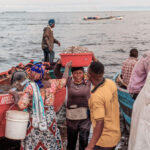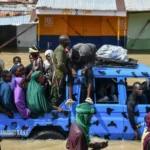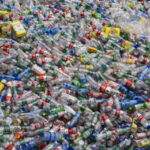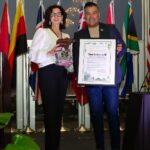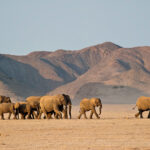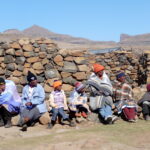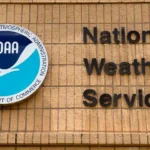In the Tanzanian coastal town of Pangani, women working in the marine sector are facing more than just shrinking fish stocks. As sardines disappear from the ocean, some women report being asked for sexual favours in exchange for access to the remaining catch.
The disturbing accounts came to light during a stakeholder consultation under the ReSea Project—an initiative aimed at building resilience among coastal communities in the Western Indian Ocean. Implemented by IUCN Tanzania, Mission Inclusion and other partners, the project explores how climate impacts affect women and youth differently.
“Based on what I’ve seen and experienced, I wouldn’t even allow my daughter to engage in this business,” said one woman who has spent over a decade processing sardines.
Rising seas, shrinking safety
Climate change is not gender-neutral. In Pangani, women and young people in the Blue Economy are finding themselves increasingly marginalised. Resource scarcity is fuelling not only economic hardship but also gender-based violence and systemic exclusion.
Participants in the ReSea session highlighted deep-rooted challenges:
- Cultural norms that keep women out of decision-making
- Leadership roles are seen as inaccessible or unrewarding
- Low literacy among older women
- Disproportionate caregiving burdens
- Limited confidence in engaging with marine governance structures
In response, a community-wide awareness event was held in Pangani Magharibi Ward. Through theatre, testimonies and open discussions, the event tackled gender inequality and encouraged broader participation in marine conservation.
“Voices of women and youth echoed across the ward,” said Glory Mbia, Gender Coordinator at Women Fund Tanzania Trust. “It was a powerful step toward inclusive environmental stewardship.”
A continent hit hardest, yet funded least
As stories like Pangani’s unfold, the African Development Bank (AfDB) is advancing efforts to unlock new sources of climate finance.
At its recent annual meeting in Abidjan, AfDB announced plans to launch the Africa Carbon Support Facility, a mechanism aimed at growing Africa’s presence in global carbon markets.
The facility will support African governments in developing carbon trading policies and help build infrastructure for generating and trading carbon credits—financial instruments tied to activities like reforestation or renewable energy projects.
“We envision a future where carbon credits can become a tradable commodity on Africa’s stock exchanges,” said Anthony Nyong, the bank’s director for climate change and green growth.
Although Africa accounts for a tiny fraction of global emissions, it suffers disproportionately from climate disasters—from droughts in the Horn of Africa to cyclones hitting island states like Madagascar. Yet the continent receives just 1% of global climate finance.
AfDB says that integrating African carbon credits into compliance markets—not just voluntary ones—could boost their value tenfold and increase the earnings of communities like Pangani’s.
A shared future demands shared solutions
From coastal towns where women face exploitation to boardrooms drafting climate finance policy, a single thread runs through: Africa needs climate solutions that are just, inclusive and rooted in the realities of its people.
Empowering women in fisheries and investing in carbon markets are not separate fights—they are part of the same push to ensure that no one is left behind in a warming world.


